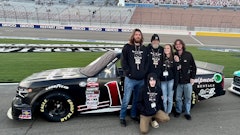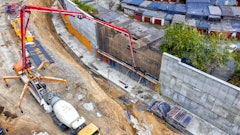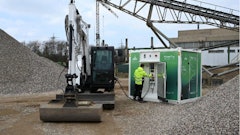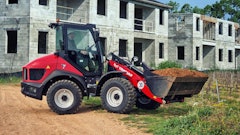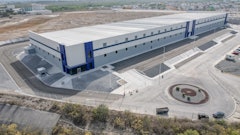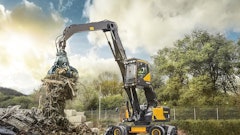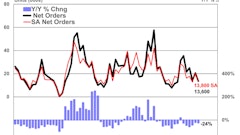If you were ever going to spend some of your valuable time and dollars to work up a game plan for 2005 and 2006, this is the time to do it. There are just too many variables out there regarding taxes not to take this seriously — and the alternatives are not pleasant to consider.
The construction business is expected to remain robust for the next couple of years, or until interest rates slow the advances. Many analysts don’t expect a major change in rates for many years. Add in the release of highway bill funding, and you really have something to talk about. All in all, things should be good.
To us bean counters, all this available work translates into firmer pricing and thus profits, then, finally, taxable income. I know you don’t like to hear or think about it. Yet, no matter how you look at it or how your operation is structured, if you make enough money, eventually you will have to pay your partner in Washington D.C.
What makes this point in time so dicey is the bonus depreciation and other incentives you may have used over the last two years. They were great, especially if you generated taxable income in 2003 or 2004, or had the ability to carry back NOL claims to prior years. It sure was nice to get your hands on that cash, or to keep the cash you would have used to pay taxes for reinvestment in the business. Hey, it was like the IRS code didn’t exist. But guess what — all good things come to an end, and they could come to an abrupt end with a nasty surprise to boot.
Plan For Your Tax Future
So where are you now? You are at a point in time where you need to be careful about your tax planning. If the predictions play out as indicated and you continue to have good years, the depreciation deductions you counted on previously may not be available in 2005 and 2006 because you already used them.
A bonus depreciation recap appeared in last month’s issue reflecting the difference between using bonus depreciation or just MACRS. If you reviewed that schedule, you can see that you may have deducted between 60% to 70% of the cost of new equipment purchases in 2003 and/or 2004. If you did, there is not much depreciation deduction left for 2005 and 2006. And if you went out of your way to upgrade equipment because of the incentives, and accelerated your purchases, your equipment replacement needs may be pushed out for years to come, thus creating a big gap in tax deductions.
What you need to do is review your equipment fleet for both book and tax purposes for the remainder of 2004, as well as project your depreciation for book and tax purposes for ’05 and ’06. Next, produce realistic revenue and pre-tax income budgets for ’05 and ’06 and see where you stand. Just for the heck of it, run the same projections with a 20% increase and a 20% decrease off of your best guess. Do it properly and you wind up with a pretty good idea what range your exposure falls in.
If your calculations fall into the lower brackets, I wouldn’t worry too much about taxes. Spending a lot of time and money to save 15% tax dollars may not make much sense. If you are in the higher brackets you have a different issue.
Here, you not only have the tax to worry about, but also any related estimated taxes. Adding the two together can create a material cash need. Those of you in this position need to schedule the planning meetings sooner rather than later.
One other comment to consider: You do not want the “tax tail wagging the dog”. You deferred taxes using the bonus and other incentives. This provided you with cash to stimulate the economy, especially through buying equipment.
Hopefully, you made good decisions that now generate overall profit for the company. Assuming you did, you will pay taxes on those profits, but are expected to pay the least amount required under the law. That is the American way and you will not get argument out of Uncle Sam using that approach.
As such, consider traditional planning opportunities and make realistic, sound business decisions to reduce your taxes. But avoid taking steps that hurt the overall ability of your company to do business in the marketplace. You still need to appease your business partners if you plan to use them in the future. Bankers, vendors and bonding companies all like to see reasonable profits and cash flow. Overly aggressive tax planning can sometimes harm these relationships.
Use Equipment As A Tax Tool
Equipment purchases still provide tax benefits relative to 2005 and 2006. MACRS without the bonus allows significant deductions the first two years. Even if you can’t get delivery in 2004, you still get reasonable write-offs in ’05 and ’06. If you have the need and it makes sense, equipment purchases may be one of your tax planning tools.
Contractors with heavy tax exposure may want to avoid selling used equipment with a low tax basis in ’05 or ’06. You are only adding to your tax burden. A “like-kind” exchange or trade-in would be preferable. If you have tax issues along with fleet management issues, talk to your dealers to see what solutions they may offer.
To sum up, there is NO excuse to wind up with an unexpected tax bill calculated in the highest bracket. You may wind up with the tax bill, but it should not be unexpected. The use of bonus depreciation in combination with Section 179 deductions has deferred significant tax dollars for contractors. The key word here is “deferred”!
You need to get a handle on where you stand by projecting revenues and taxable income, and do what is required from a planning standpoint. If you wind up with great years in 2005 and 2006 and have to give back some of the deferral, at least you have a good year to plan for it. If you wind up in that position, you should be happy, your spouse should be happy, your banker will be happy and your other partners should be happy. Just don’t pay more than you need to employing reasonable tax planning ideas. Garry Bartecki is director of dealer/distributor services at BDO Seidman, LLP of Chicago, as well as a consultant to the AED. He has also worked as an independent CPA and consultant to equipment dealers. He can be reached at (312) 616-4677 or [email protected].



